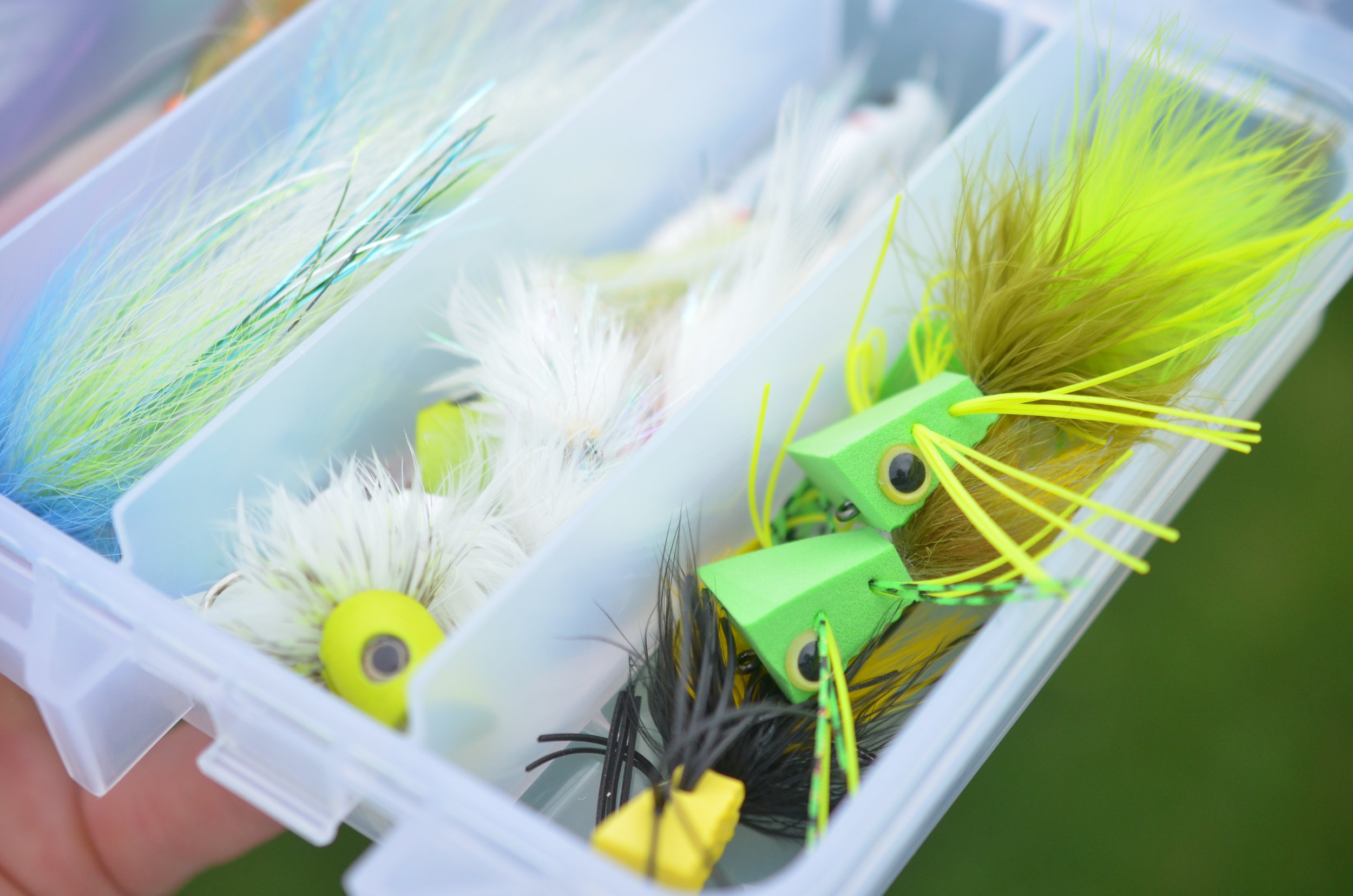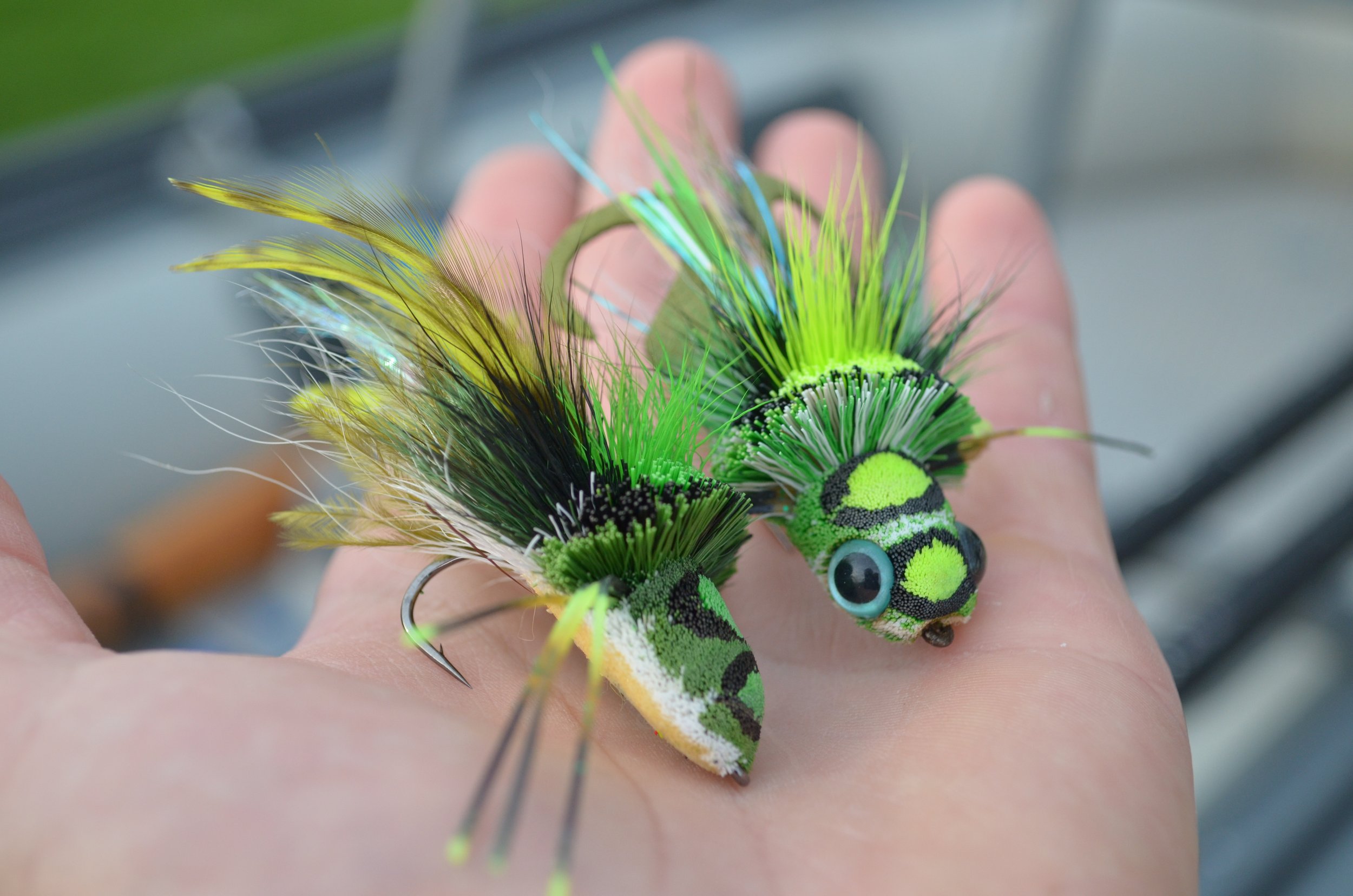Topwater Flies Explained - Part I
Top water fishing is arguably one of the most exciting fly fishing experiences. No matter the species, presenting a fly on the surface of the water and watching it get eaten by a fish will please any angler. Each species of fish has their own topwater flies with some cross over. In the next couple of articles, we will dive into the different top water flies I like to use for smallmouth and largemouth bass. We will explore the different kinds of top water flies, and how and why to use each one. With the wide variety of flies out there, different manufactures, and different tiers, we can’t possible hit every fly out there, but instead we will focus on broad categories.
Deer hair flies make great noise and attract fish in dark and stained water.
First up, poppers may be the most widely recognized and favorite fly of most bass fishermen. They create a loud sound on the water, leave a bubble trail behind them, and tend to float high on the surface of the water. Poppers made out of deer hair are some of my favorite to tie and fish. The deer hair is tied on the shank of a hook then cut and glued to shape creating a flat face surface and a cylindrical body. Other poppers are made of cork or foam. Cork poppers are great for creating a loud splat when splashed on the surface and foam is very easy to shape and easier to cast because they are lighter.
These foam head are great for making loud noised, attracting fish, and are very easy to cast.
Typically, I like to fish poppers when the water is slightly stained and a little high. A floating line is best for fishing poppers. I find they do great at signaling to fish in darker water, however, when the water is low and clear, I find poppers do more harm and scare away the fish. While poppers are great topwater flies, they have their time and place. Focus their use early or later in the day and when water conditions dictate that fish need some help dialing in their prey.
Baitfish poppers offer a large profile and meal for an eager fish. Here these game changer style poppers work great for bass.
Baitfish poppers are in the popper family but differ slightly. Often these flies will have a popper head or face which will help make the popping noise, but they will also have a minnow or baitfish body that swims behind the head. The game changer platform is a great way to get a swimming fly behind a popper head to imitate a small baitfish swimming at the surface and jumping around. Often times, baitfish poppers are large and will attract larger fish. I fish these in similar conditions as regular poppers. Stained, slow, and deep water are perfect places to throw baitfish poppers.
These deer hair divers make great frog imitations that will entice any smallmouth bass.
Divers are another category of topwater flies used for smallmouth, largemouth and even pike. Divers are my personal favorite to fish because I find them more versatile. When stripped properly, they dive under the surface and make a noise and leave a bubble trail signaling to fish. Additionally, they can be kept underwater and swam like a frog would swim. Divers can be fished on floating lines or intermediate lines to help keep them swimming a little lower in the water when stripped.
Conditions to fish divers are similar to poppers, however, you can have success with them in low and clear water too, because they can be more subtle. Leaving a diver on the surface of the water and giving it slight twitches will bring great success.
Which one will you throw next time you’re out?
As with any fly, confidence in what you are fishing is important. If you enjoy fishing poppers or divers, you will be more apt to throw them. I would encourage you, however, to try different kinds and you might find a new favorite.
A beautiful smallmouth bass caught using a foam head popper in stained water.
In the next article we will discuss a few different kind of top water flies that may be less known or used. Stay tuned.
Cheers,
Allen







